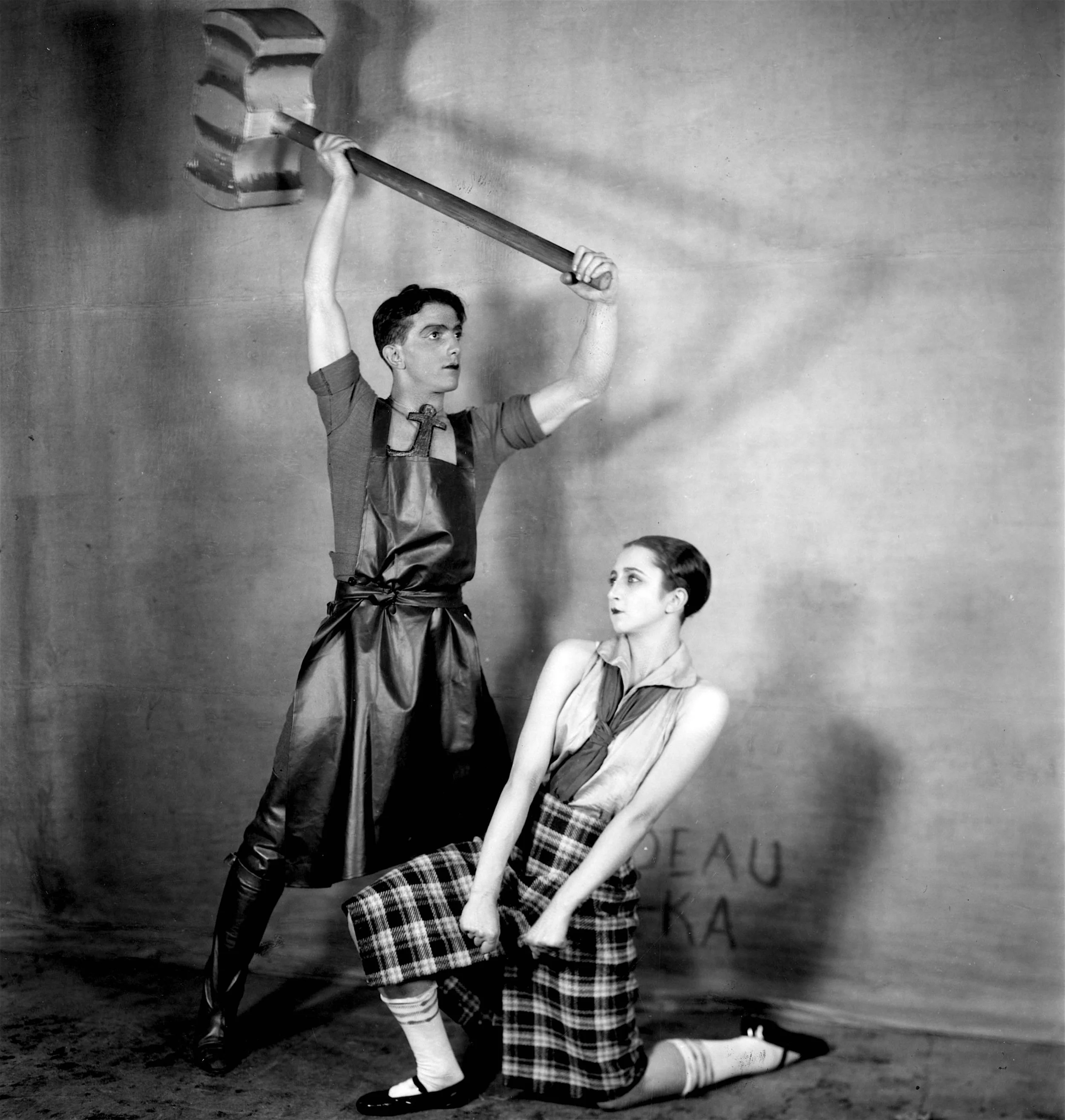Bone records and jazz on X-rays started to appear in Soviet Russia just after the Second World War, but the musical restrictions and censorship they were made in response to had started over twenty years earlier.
In the tumultuous times following the Russian Revolution, cultural experimentation, innovation, and even improvisation had been celebrated, but very quickly, a cultural squeeze began. Among the many efforts to reshape art in the service of ideology, none was more ambitious—or ultimately tragic—than the attempt to create 'proletarian’ music by the Russian Association of Proletarian Musicians, RAPM.
Founded in 1923, RAPM was an organisation of composers, theorists, and musicians dedicated to creating music that aligned with the goals of the Communist Party. Its leaders— Lev Shulgin and Aleksei Sergeev—rejected what they saw as the elitism of both classical traditions and modernist experimentation. For them, the future of music lay not in the concert hall, but in the factory, the kolkhoz collective farm, and the workers’ club.
By the late 1920s, they had become the dominant force in Soviet music policy and were given positions of influence in cultural institutions. Other groups who favoured experimentation or musicians such as Prokofiev who were open to Western influences were brutally dismissed as bourgeois, decadent, and detached from the people, which increasingly put them in danger of persecution.
Léonide Massine and Alexandra Danilova during a production of Prokofiev’s Le Pas d’Acier in London.
Jazz in particular, and some very specific jazzy elements like syncopation and minor sixth and seventh chords, were criticised as a threat to Soviet cultural values. By 1928, the importing of foreign records was banned, and public dances were patrolled by Komsomol members to prevent infringements.
RAPM’s mission was to develop simple compositions that could be sung collectively by workers and peasants. These songs were often inspired by folk traditions, military marches, or choral hymns and carried overtly political messages to educate, unify, and mobilise the proletariat.
Shulgin’s 'Song About the Party' (“Песня о Партии”), widely performed in the 1930s and creepily, though probably sincerely, sycophantic, is a classic:
'Free children of the unprecedented country,
Today we sing a proud song
About the most powerful Party in the world,
About our greatest leader.
You are the people’s pride, you are the people’s wisdom,
You are the people’s heart and its conscience.
Covered with glory, united by will,
Grow stronger and thrive for all centuries—
Lenin’s Party, Stalin’s Party—
The wise Party of the Bolsheviks!
Not very Rock’n' Roll
Isaac Dunayevsky’s “March of the Enthusiasts” (“Марш энтузиастов” ) came later but completely embodied the spirit of RAPM
On working days of the great construction sites,
In cheerful rumble, in fires and ringing,—
Hello, country of heroes,
Country of dreamers, country of scientists!
There are no obstacles for us, neither on sea nor on land,
Neither ice nor clouds scare us.
The flame of our soul, the banner of our country,
We will carry through worlds and ages’
That was composed in 1940, the very same year that Duke Ellington knocked out “Cotton Tail” and “In a Mellow Tone” —and when jazz was advancing towards bebop
For a time, RAPM enjoyed political favour. But by the early 1930s, in a classic Orwellian twist, its rigid doctrine—called “vulgar sociologism” by critics—was declared out of step with the evolving Soviet cultural policy. The idea that art should be reduced solely to class struggle was deemed simplistic and harmful. While Socialist Realism still demanded ideological purity, it also emphasised aesthetic value, craftsmanship, and emotional resonance. The new Party line was that:
“Art must be ideologically correct but also artistically valuable.”
Jazz even had a brief reprieve, and in 1932, RAPM was dissolved. Many leading members were at first absorbed into new Soviet cultural institutions, but then, during the Great Terror of 1936–1939, were arrested, imprisoned, or executed. Those who survived, recanted or were forced into silence. The very system they helped build turned on them.
But Dunayevsky rose to fame. Though he had not been a RAPM member, he shared their goals, but his music was both ideologically sound and sophisticated and tuneful. His “Song of the Motherland” (Pesnya o Rodine) from the film Jolly Fellows managed to be both propaganda and popular. Here is an English version:
Popular perhaps, but you can see why after young Soviets got a taste of jazz during the war, they were keen to get something with a bit more swing.
Dunayevsky managed to navigate the Stalinist system successfully, earning prizes and wide acclaim and became the leading composer for Soviet cinema in the 1930s and 1940s.
Lev Shulgin’s fate was tragic given his lifelong dedication to the Soviet project and grimly ironic given his own repressive actions whilst leading RAPM. He was arrested in 1937 during the NKVD purges, accused of counter-revolutionary activities and executed. This was a man who had sought to use music as a revolutionary force, only to be destroyed by the very revolution he helped shape.
